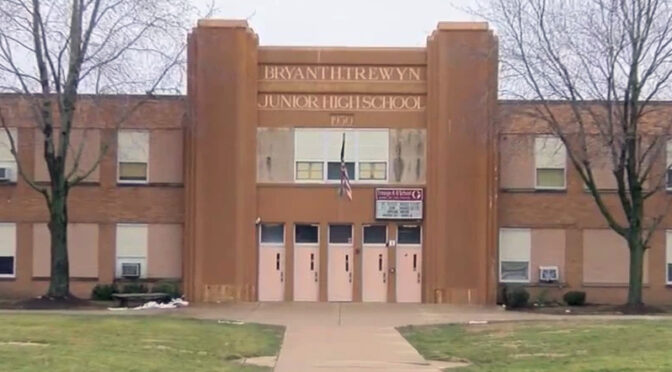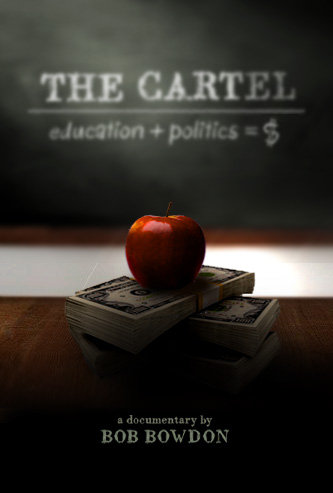Georgia is one of ten states that won big grants in the “Race to the Top” competition last year. “Race to the Top” is an education incentive plan championed by President Obama that awards billions of dollars to states that have the best plans for school reforms. Illinois didn’t make the cut.
But in Atlanta, they figured out a sure-fire way to improve test scores: cheat.
Across Atlanta Public Schools, staff worked feverishly in secret to transform testing failures into successes.
Teachers and principals erased and corrected mistakes on students’ answer sheets.
Area superintendents silenced whistle-blowers and rewarded subordinates who met academic goals by any means possible.
Superintendent Beverly Hall and her top aides ignored, buried, destroyed or altered complaints about misconduct, claimed ignorance of wrongdoing and accused naysayers of failing to believe in poor children’s ability to learn.
For years — as long as a decade — this was how the Atlanta school district produced gains on state curriculum tests. The scores soared so dramatically they brought national acclaim to Hall and the district, according to an investigative report released Tuesday by Gov. Nathan Deal.
In the report, the governor’s special investigators describe an enterprise where unethical — and potentially illegal — behavior pierced every level of the bureaucracy, allowing district staff to reap praise and sometimes bonuses by misleading the children, parents and community they served.
The report accuses top district officials of wrongdoing that could lead to criminal charges in some cases. […]
For teachers, a culture of fear ensured the deception would continue.
“APS is run like the mob,” one teacher told investigators, saying she cheated because she feared retaliation if she didn’t.
The voluminous report names 178 educators, including 38 principals, as participants in cheating. More than 80 confessed. The investigators said they confirmed cheating in 44 of 56 schools they examined.
The scandal has prompted a lot of soul-searching among educators. Many want to blame a system that holds teachers accountable for student performance on tests: “In Atlanta, teachers who confessed to cheating told investigators they felt inordinate pressure to meet targets set by the district and faced severe consequences such as a negative evaluation or termination if they didn’t. The behavior was reinforced by a district culture of fear and intimidation directed at whistle-blowers.” Others say the individuals involved in the cheating have no one to blame but themselves for their moral/ethical lapse.
While this scandal is notable for how widespread and blatant it is, the pressure on the nation’s public schools to improve performance has prompted many less-scandalous, but questionable decisions. For instance, Peoria’s District 150 made a change to its grading policy a couple of years ago. Now, “if a student puts forth the effort and completes an assignment but receives less than 50%, the grade shall be recorded as 50%.” What is this if not institutionalized cheating? It gives credit for work that was not earned, and artificially raises averages for individual students as well as the school itself.
And there are other tricks. Scores are evaluated on a per school basis over time, so one way to reset the clock on under-performing schools and raise test score averages is to close schools that are on the academic watch list and consolidate students into larger schools. Combining low-performing students with high-performing students raises averages for the school without necessarily improving achievement among the individual low-performing students. Plus, the new consolidated school gets to start over on the state’s evaluation process. That’s not the official reason given for consolidation, however. We’re told that consolidation is necessary to save money, yet the supposed monetary benefits never seem to materialize.
Money is a very strong motivator, and that’s why the federal government is increasingly tying its money to performance. But here’s the problem: that only works for teachers and administrators, not students. Teachers and administrators need to be motivated to do their best, but so must students. What systems or incentives are in place to motivate students to learn, or to take responsibility for their own education? And what about parents? Parents, not the state, are ultimately responsible for their children’s education. What systems or incentives are in place to motivate them to take that responsibility seriously? Perhaps there are none, and perhaps there can be none. But if so, we need to find an evaluation mechanism that holds teachers accountable for what they can control and not punish them for what they cannot control.
I don’t excuse or condone the Atlanta teachers and administrators involved in the cheating scandal. What they did was wrong. But let’s not let their moral failings obscure the legitimate problems that exist within our current education system.



 I went to see “
I went to see “ I heard
I heard